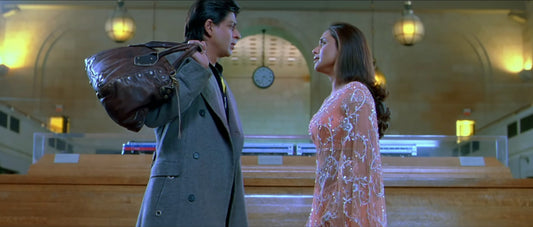Not long after the nuclear clouds of World War II faded over the Pacific Ocean, a copy of the Diamond Sutra, a 9th-century Buddhist scripture and one of the oldest dated books in existence, fell into the hands of a 22-year-old philosophy student in South Korea. That student was Duk-In Lee, who became so moved by the sutra’s words that he dropped his formal studies and journeyed into the Korean mountains where, for 100 days, it’s said he survived only on pine needles and rainwater. When he came down below the tree line, he was Seung Sahn, soon to become the youngest Zen Buddhist master in Korea.
Sahn went on to become one of the first and most influential Buddhist masters to teach in the West. Arriving in America during the 1970s, he found a populace that was new, but increasingly open, to Eastern philosophy. Sahn traveled the country, leaving behind Zen centers in cities like Boston, New York and Los Angeles. During his wanderings, he came to a town with a depressed manufacturing sector, a troubling crime rate and heavy-handed urban planning threatening to axe its claim to the title “Elm City.”
Seung Sahn had arrived in New Haven.
40 years since its founding, the New Haven Zen Center sits where Sahn left it: inside a Victorian-style house in the middle of Mansfield Street, home to several resident monks. Senior Dharma Teacher Paul Bloom (pictured first) showed me the quiet workings of the center on a Wednesday night. In one room, incense burned beneath a Buddha statue’s chin; in another, a kettle bubbled on the stove. In a bookstore that’s more like a closet, curious titles like Open Mouth Already a Mistake rest among sparse shelves.
sponsored by
Nearby is the room where, every Wednesday evening, the center offers introductory meditation (and a cup of gentle barley tea) to anyone who comes. They sit on cushions near a soft-lit shrine, wearing simple robes and breathing quietly for an hour (with a break for circulation’s sake). This is a place where bills can be forgotten, deadlines put on mute and the psyche centered—where the demands of modern life loosen their grip.
According to Bloom, people are finding more and more reason to come knocking. “There’s some change of mind and heart going on… not just here but in general in the United States,” he says. “I think the difficulties we’re confronting are no different than the difficulties of being human that have always been there. But the pointedness of it in this post-industrial age is different.”
As a teenager Bloom would climb through New Hampshire’s White Mountains and, like Sahn, he found more among the peaks than moose and mushrooms. “I’d cross the tree line and go, oh. And it had some weight, and I didn’t know what it was about,” he says. “But something was clearly going on there. I was in this astonishing universe as a conscious being and I didn’t know what to make of it.”
Over the years, people on countless paths—poets and translators, doctors and furniture designers—have found their way to the NHZC, trying to make sense of their own ohs. But how do you find answers to questions you can’t quite express?
For practiced Buddhists like Ken Kessel, who began studying with Seung Sahn in 1975 and is now the guiding teacher at the New Haven Zen Center, paradoxes like these are the bread, and “koans” are the butter. “A koan is a tool,” he says, “that helps us wake up to our own nature”—a conversation, often quixotic, intended to help us question the epistemic bases we think we have for thinking the ways we do.
“Zen talks a lot about ‘emptiness’—‘the world is empty of self-nature,’” Bloom says, referring to the notion that, while the world and its objects are real, the sense of hard differentiation between the self and the non-self—say, you and I, or you and that rock over there—is in a certain sense illusory. “So new students get all buzzed-out on emptiness,” he says.
“Now I want to ask you what this is.” Bloom places his wristwatch on the coffee table between us. “If you’re working on being a good Zen student and you tell me it’s ‘empty,’ I’ll hit you.” We laugh. “But if you tell me it’s a watch I’ll also hit you, because that’s just name and form. So what I want you to do is put away your thinking mind for a minute, and tell me what this is.” Bloom closes his eyes and waits for me to describe the ticking thing between us.
It was a long time before I answered.
New Haven Zen Center
193 Mansfield St, New Haven (map)
Website | Meditation Schedule
Written and photographed by Daniel Shkolnik.








